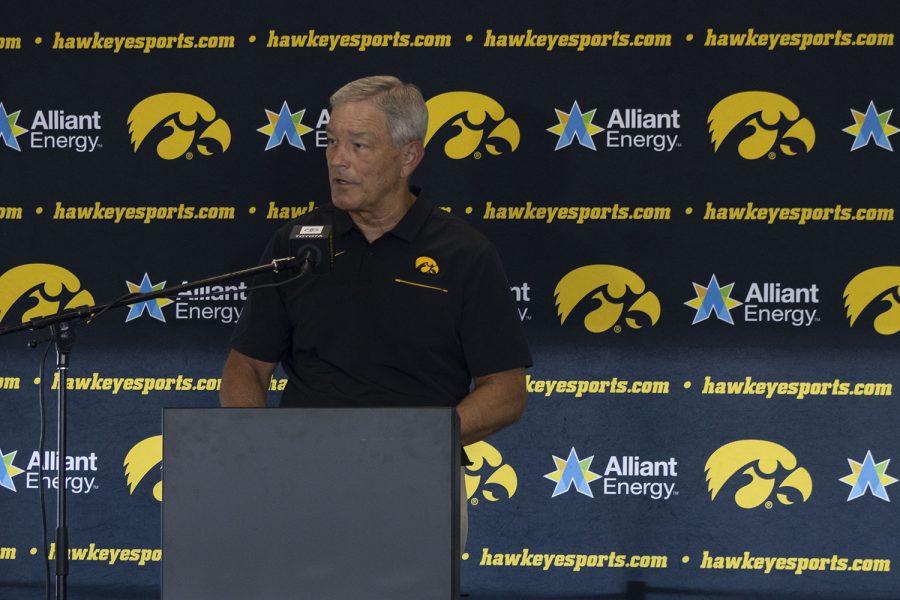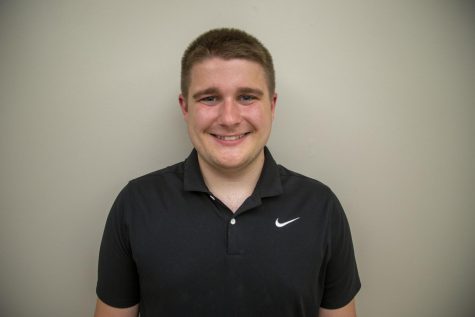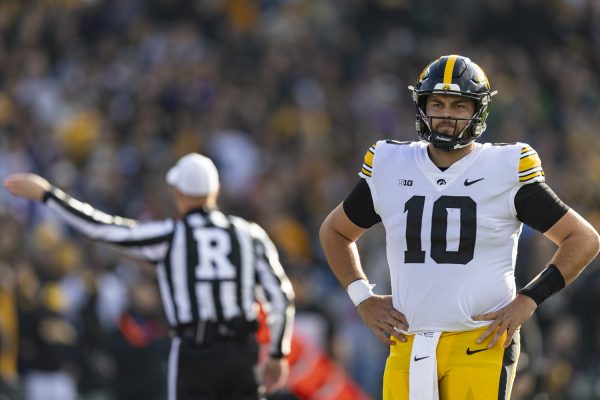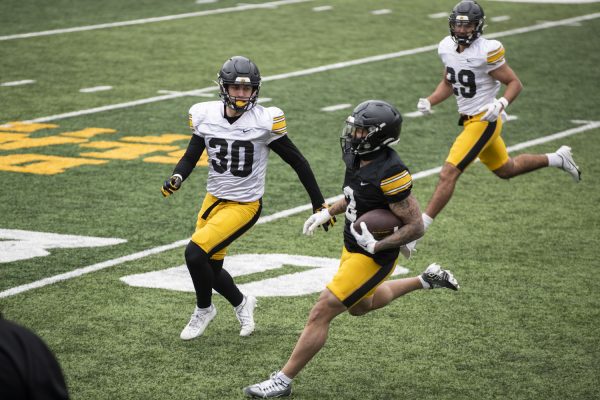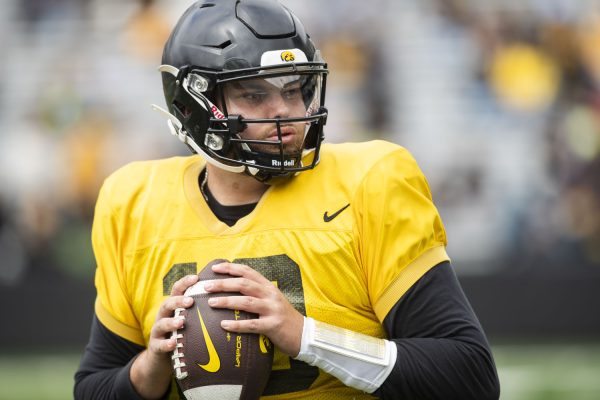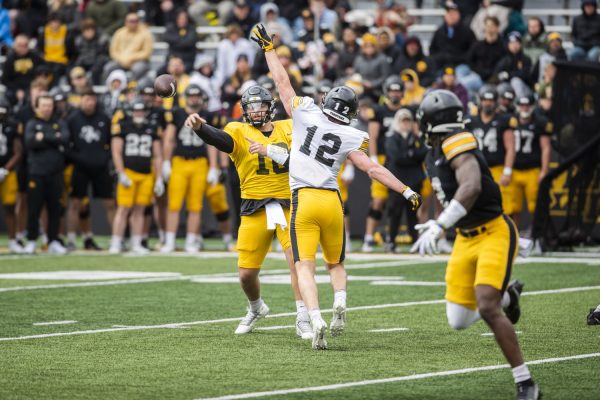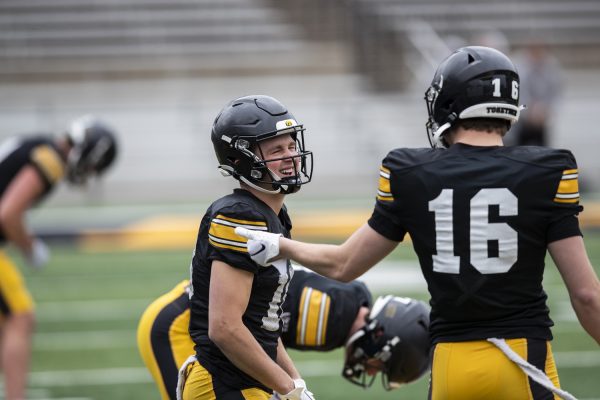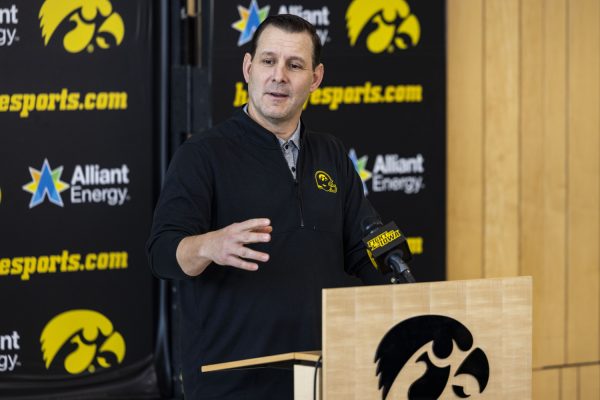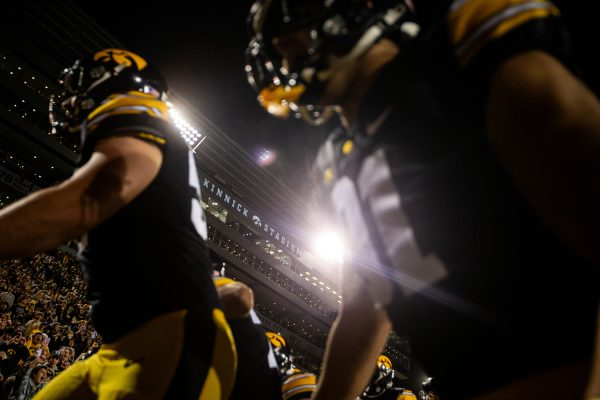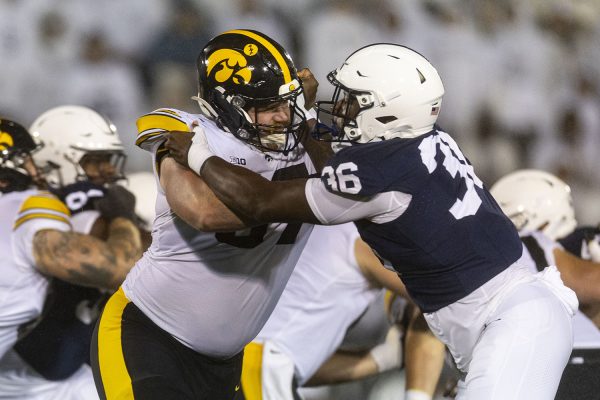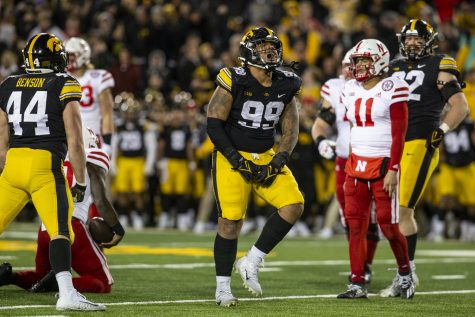Report shows Iowa was aware of ‘serious racial bias’ within football program after internal investigation
Hawkeye Nation reported the findings of a study done by the UI Athletics Diversity Task Force that was presented to Iowa in April of 2019.
Iowa head coach Kirk Ferentz speaks at a press conference on Thursday, July 16, 2020 at the Pacha Family Club Room in Kinnick Stadium. Ferentz discussed the upcoming football season and the continuing actions that the team is working on toward strengthening inclusivity in the program. (Hannah Kinson/ The Daily Iowan)
July 20, 2020
Dozens of Black former Iowa football players began speaking out in early June about alleged racial disparities within the program and the mistreatment of Black players. According to a report by Hawkeye Nation, a document shows the Iowa athletics department knew about the extent of these problems over a year ago.
A nine-page report completed by the UI Athletics Diversity Task Force was given to the Iowa athletics department in early 2019 and detailed many of the same instances of racial disparities that former players alleged on social media two months ago.
The Diversity Task Force interviewed 50 current and former student-athletes, coaches, and staff members from various backgrounds for this study, which started in 2018. The report, which HawkeyeNation.com acquired through a Freedom of Information Act Request, described how Black players at Iowa were:
- Expected to conform to white culture
- Subjected to verbal harassment
- Targeted for extra drug testing
- Misled about resources available to them during the recruiting process
- Subjected to inequitable discipline policies and double standards
- Misunderstood by both coaches and white players
- Unsupported in their academic pursuits
At a press conference June 15, the same day former strength and conditioning coach Chris Doyle agreed to a separation agreement with the University of Iowa after being named specifically in the allegations made by several former players, Iowa athletic director Gary Barta acknowledged the Diversity Task Force’s report.
“I had convinced myself that we were doing enough,” Barta said at the press conference. “And frankly, the past few weeks have been a wake-up call for me and others in the department… I thought we were on a path of doing things better and doing the right things. The things I’ve heard in the past week and a half especially, clearly they weren’t enough, and they weren’t happening fast enough.”
Minor changes were made to the football program’s culture following the report’s findings, such as allowing players to wear hats and earrings in the team facility.
At a press conference July 16, Iowa head coach Kirk Ferentz said he read the report in 2019. He said he formed a committee of current Black players that could address what needs to be done to improve the culture of the program.
Ferentz said he met with the group in August and recommended they meet again either during the bye week or following the end of the regular season. Ferentz said he did not meet with the committee at either time.
“I dropped the ball…I felt we had a pretty healthy environment, a pretty healthy culture last December,” Ferentz said. “Coming off the field in California [after the Holiday Bowl], I felt pretty good about things. When we left here on March 13, I felt good about our positioning to start spring practice. A lot of things in the world have changed since then.”
In a video conference following the initial allegations made against the program, Ferentz said he was aware of some of the claims of mistreatment but didn’t necessarily know how deep the problems went.
“I don’t want to say I was blind-sided,” Ferentz said. “… but the bottom line is we don’t want anybody to leave this place not feeling like this was a good experience.”
According to Hawkeye Nation, James Daniels, whose Tweet on June 5 encouraged other former players to start sharing their experiences with the Iowa program, met with Barta midway through the 2019 spring semester while he was finishing his degree following his first NFL season.
There are too many racial disparities in the Iowa football program. Black players have been treated unfairly for far too long.
— James Daniels (@jamsdans) June 6, 2020
In the meeting, Daniels confirmed that the findings in the report were happening inside the football program.
Barta said June 15 that a key theme of the report was Black football players not feeling comfortable being their authentic selves in the program. No staff members were named in the report and interviews were done anonymously.
However, Barta mentioned specific “concerning” statements from the report made by players:
- “I felt I had to put a mask on and check my identity at the door.”
- “I was told by my coach to change my hairstyle because it didn’t fit the Iowa culture.”
- “One student-athlete said a staff member cursed and yelled, degrading an African-American student-athlete in front of his peers.”
Additional quotes were provided in the report that expressed similar concerns.
“The white student-athletes at Iowa are viewed as the standard that African-American student-athletes should strive to mold themselves after,” one player told the task force.
“We are told to focus on one thing only, our sport,” a second player told the task force. “Everything else is a distraction, even having significant others. We are told to commit to the team first and only be friends with student-athletes.”
Barta announced June 15 that the UI was hiring the Kansas City-based law firm Husch Blackwell to review the allegations relating to racial disparities within the football program. Barta said at the time that he was told the review would take “weeks, not months” to complete.



